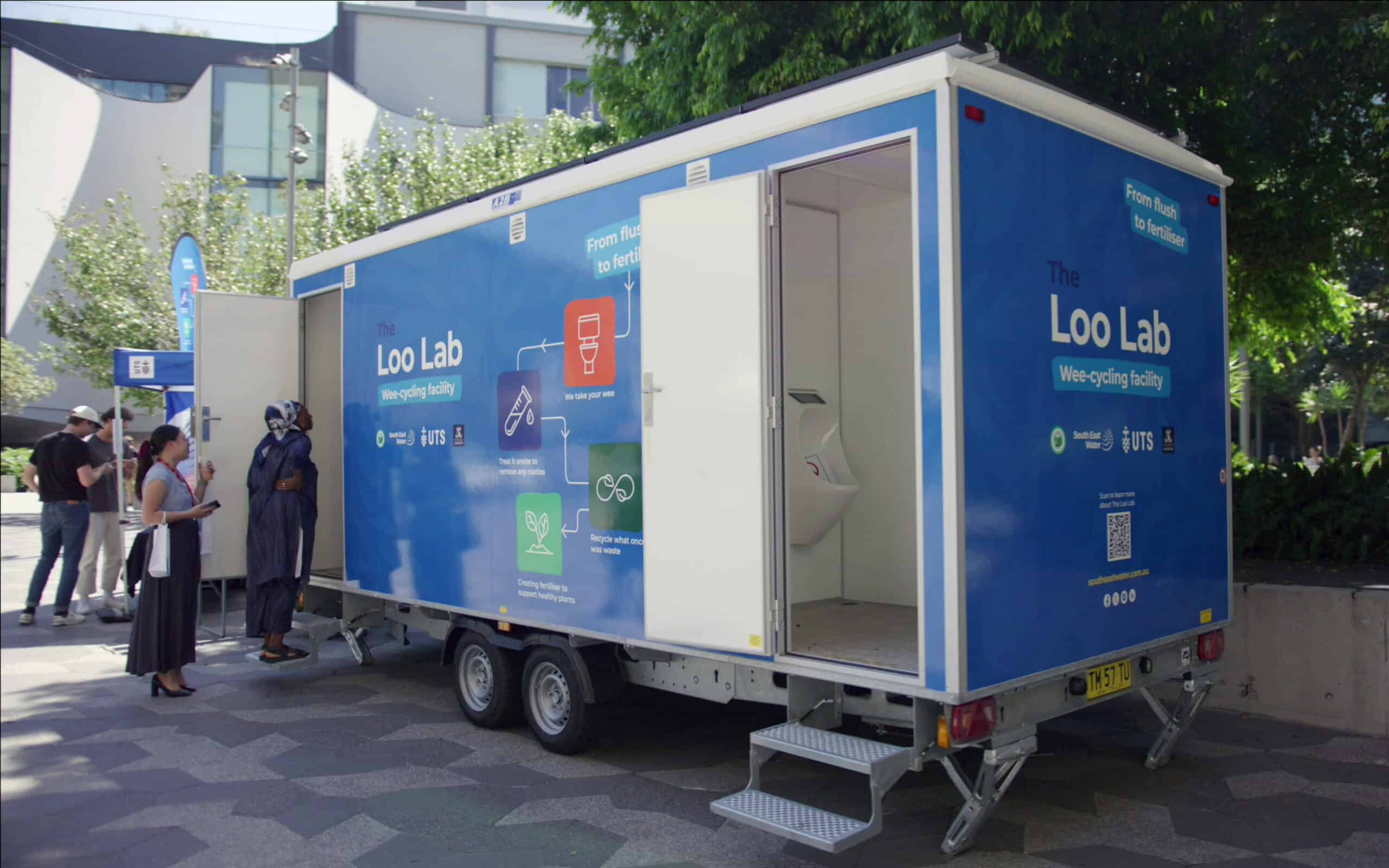
A groundbreaking Australian innovation is making a splash this month, transforming urine into a safe and valuable fertiliser while helping to relieve environmental pressures.
South East Water is proud to support the NiCE Loo Lab, a revolutionary mobile public toilet developed in partnership with the Australian Research Council (ARC) Nutrients in a Circular Economy (NiCE) Hub, that converts flushed nutrients to fertilisers that can be used for agriculture. It features a refrigerator-sized, 200-litre membrane bioreactor system and is a world-first featuring urine diversion, collection, and treatment technology.
The NiCE Loo Lab is the result of 2 years of collaborative research between South East Water, University of Technology Sydney (UTS), ARC and The University of Melbourne. The University of Melbourne is showcasing the revolutionary Lab from Tuesday 23 September as part of the International Conference on Circular Economy for Climate and Environment 2025.
South East Water General Manager of Research, Innovation and Commercialisation Daniel Sullivan said the project aligns with the organisation’s commitment to streamline sustainable wastewater management solutions.
“Every day, valuable nutrients are flushed away in wastewater. The NiCE Loo Lab is an innovation that seeks to recover and recycle nutrients back into beneficial use as fertiliser for agriculture,” Mr Sullivan said.
“We’re proud to be a partner in this ambitious project and look forward to seeing how it can be applied at scale to deliver a circular economy outcome.”
Project leader and NiCE Hub Director, UTS Professor Ho Kyong Shon, said the NiCE Loo exemplified cutting-edge technology in waste management.
“The integration of membrane bioreactors into urine treatment processes represents a significant advancement in producing safe, efficient, and sustainable fertilisers,” Professor Shon said.
“But the practical purpose of the project extends beyond the technology itself. Public perception is crucial for building trust in urine-derived fertilisers and retrofitting existing buildings with urine diversion toilets can be costly.”
The deployment of the NiCE Loo Lab in suitable settings, such as public outdoor events, can play a role in shaping acceptance, demand and policy support for sustainable sanitation and agriculture.
For more information visit The Loo Lab | South East Water.


